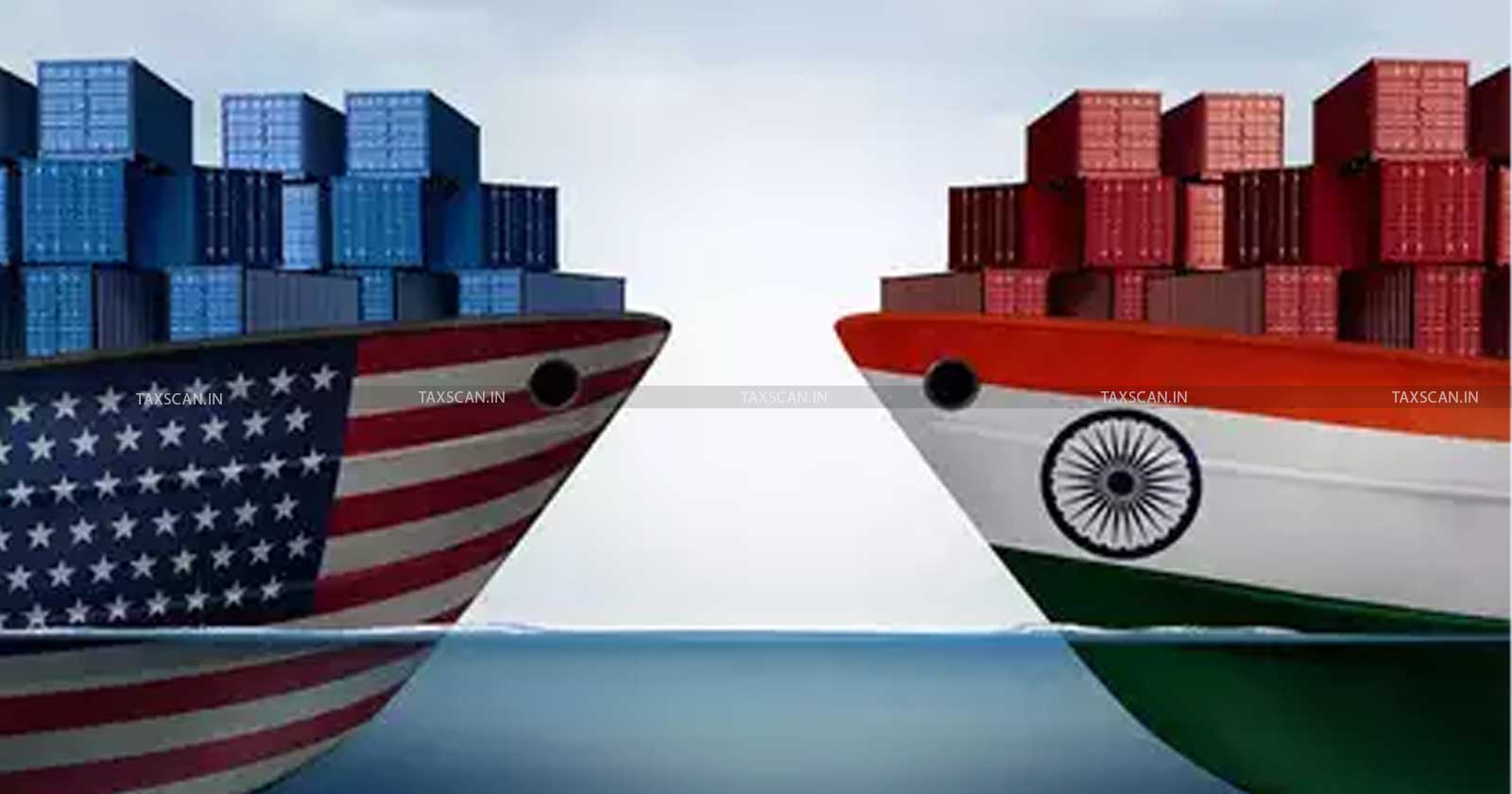US Tariffs Prompt Indian Exporters to Fast-Track Shipments as Buyers Seek Discounts, Delay Payments
Amid the uncertainty, exporters are pinning hopes on the Bilateral Trade Agreement (BTA) currently under negotiation between India and the US.

US tariffs India – Indian exporters news – Export discounts – Taxscan
US tariffs India – Indian exporters news – Export discounts – Taxscan
Indian exporters are scrambling to dispatch consignments ahead of April 9, when the United States newly announced reciprocal tariffs comes into effect. The move has sent ripples across the trade ecosystem, particularly affecting sectors such as engineering, apparel, and leather. With US buyers now demanding steep discounts—up to 25% in some cases—and halting fresh orders, exporters are bracing for a slowdown in trade momentum and stretched payment cycles in the weeks ahead.
The tariffs, announced under a new trade framework by former US President Donald Trump, impose a flat 10% duty on all imports into the US, with steeper rates for countries with significant trade surpluses. India, while not facing the harshest rates, is still subject to a 26% reciprocal tariff. The move is part of the US strategy to “level the playing field” in global trade, but its immediate impact has been a sharp decline in export activity and a slowdown in global markets.
Tax Planning For NRIs - CLICK HERE
US importers, concerned about the viability of selling Indian goods at higher costs, have begun renegotiating order terms. Some buyers have asked for discounts that exporters say are not feasible due to already thin margins. In the engineering sector, which constitutes over 25% of India’s exports—with the US alone accounting for $20 billion, including $5 billion worth of steel and aluminium—traders are grappling with an additional 25% duty. Many sellers are now questioning who will absorb these tariffs on orders that are already in transit or were negotiated earlier.
Read More: Trump’s ‘Liberation Day’ Tariffs Reshape Global Trade: India Stands Resilient Amidst Higher Duties
The apparel sector is facing similar headwinds. Exporters have reported receiving requests for 20-25% price reductions from US buyers. However, given the low-margin nature of the business, such concessions are untenable. In response, the Apparel Export Promotion Council has urged the Indian government to negotiate a 30-40 day window with the US, allowing exporters to fulfill existing orders under the current tariff regime.
How to Audit Public Charitable Trusts under the Income Tax Act Click Here
With uncertainty looming, both buyers and sellers have adopted a cautious stance. New orders have dwindled, and many stakeholders are awaiting clarity on how tariff burdens will be shared. Meanwhile, customs authorities in India are fast-tracking clearances to facilitate shipments before the new rates kick in.
Amid the uncertainty, exporters are pinning hopes on the Bilateral Trade Agreement (BTA) currently under negotiation between India and the US. If concluded, the agreement could offer tariff relief and restore confidence among traders. For now, the industry is in wait-and-watch mode, navigating through volatility and hoping for a policy breakthrough.
Support our journalism by subscribing to Taxscan premium. Follow us on Telegram for quick updates


